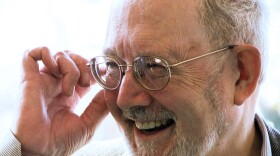Memory is one of the great mysteries – what we remember, what we choose to forget, and how our memories change with time and age. There are hundreds of books on the subject, most of them quite difficult to understand and none that offer any clear answers. But even if we can’t yet understand the science of memory we can see how it works in everyday life.
Apart from those rare individuals who really can remember everything, most of us practice a kind of selective forgetting. Any college student facing an exam asks first: What do I need to remember? But long after we leave college we unconsciously use the same technique. For example I saw a news item about an argument between someone called JZ and someone called Solange. Now I had not the faintest idea who JZ was, or Solange either, and I didn’t need to know. Why should I clutter up my few remaining brain cells with such useless information? It’s hard enough to remember where I left my car keys, or indeed my car. But this story was all over the news, so I asked my wife who told me that JZ and Solange are incredibly famous persons known and worshipped by just about everyone in the world except me. I took care to forget this information at once.
Ephemeral celebrities are easy and indeed necessary to forget, but our own personal past is not quite so easy. The cliché says: "Those who cannot remember the past are condemned to repeat it." But you can argue that the opposite is true. Those who remember the past too well repeat it endlessly, recycling old grudges, feeling the pain of old injuries, and regretting old mistakes. Forgetting helps us to focus on the present moment, and then to move forward. We stay happy or at least sane by forgetting most of the bad things in our own lives.
But then there’s the important stuff, the history. We live in the flow of history whether we like it or not. Countries that are too conscious of their own past may relive it for hundreds of years like an endless personal vendetta. Most of the violent conflicts in the world are fuelled by old and bitter memories. By contrast America is famous for forgetting its history almost as soon as it happens, and not holding grudges against old enemies. On the whole this has been a very good thing, although it has resulted in politicians making the identical mistakes over and over again, having quite forgotten what happened last time.
Memorial Day observance has declined, so that for most people it’s just a long weekend, and this is only natural. As wars fade into the past, so do the memories. One century, two centuries slip by, and soon those conflicts are nothing but chapters in history books, and the occasional monument. History is scarcely taught in schools anymore, so we can expect that in the future we will have even fewer long-term memories of any kind.
The present moment may be full of Memorial Day sales and barbecues, but, on this one day of the year, we are expected to take at least an extra moment to remember what it’s really all about, just in case we forget and make the same mistake again.
Copyright: David Bouchier






